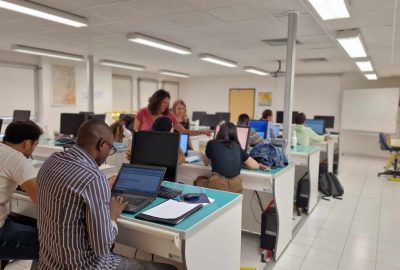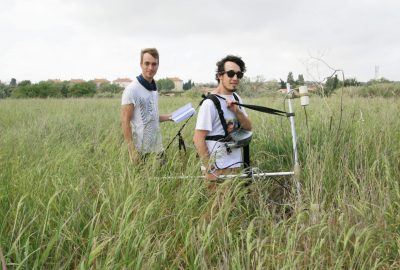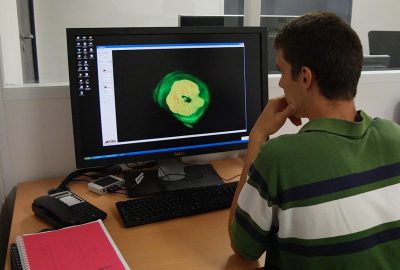Teaching Sustainable Environment
The teaching activities of the Sustainable Environment team are closely linked to its research activities and its platforms and laboratories. They are carried out by 4 teacher-researchers (Blanche Collin, Catherine Keller, Nicolas Roche and Danielle Slomberg)1 ATER and several engineers and researchers in the team who develop innovative pedagogical approaches.
The team is involved in the following educational streams :
- Licence mention SVT (course EARTH, ENVIPOM and H&E)
- a BUT Chemical Engineering - Process Engineering (GCGP)
- CMI Geology of resources and sustainable development
- Master Environmental Management (MAEVA course)
- Master Marine Science (OBEM purpose)
The courses taught cover environmental issues, biogeochemical cycles, biogeochemistry of contaminants, soil sciences, remediation of polluted sites and soils, environmental nanotechnologies, water chemistry, circular economy, process engineering, water treatment methods, ecotoxicity and methods of analysis and characterisation of environmental solutions and matrices (soils, plants, waste).
Topics are taught in the form of lectures but also during fieldwork, practical work in our laboratories and visits to industrial sites.
The team hosts trainees of all levels (BUT, Licence, Master M1 & M2, Engineering schools, ...) on various subjects (see some examples of internship offers).
Some key actions
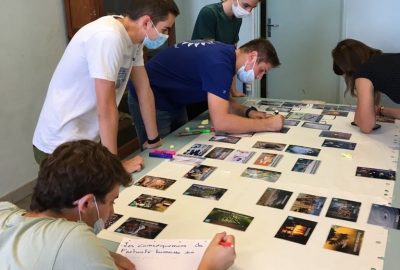
Innovative pedagogy
The introduction of innovative teaching approaches such as climate mural, the floor muralthe Jigsaw method, interactive tools such as Wooclaps, the visits to industrial sites or visits of the laboratory.
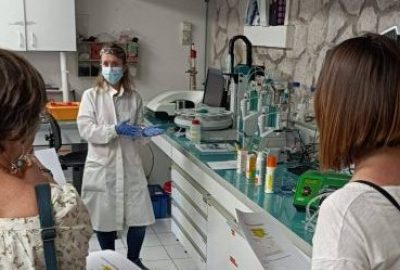
Practical work in our laboratories
Students (Master's level) are trained on CEREGE's state-of-the-art equipment (LA-ICP-MS platform, MATRIX platform, ENVITOP platform, Colloid Characterisation Laboratory).
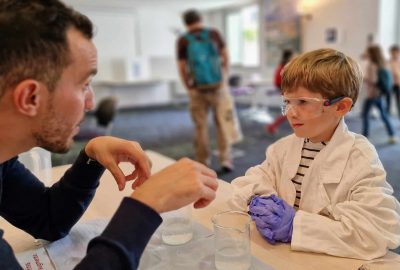
Scientific mediation
The desire to disseminate our scientific knowledge to everyone by running workshops at Arbois Science Village to mark the Fête de la Science, the creation of the NAMAC game to familiarise themselves with size scales, the creation of a series of videos "Did you know about nanoparticles?in schools and high schools, and hosting events for Trainees from middle schools and high schools and supervision of tutored projects ((BCPST prep school).
